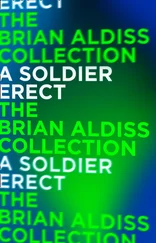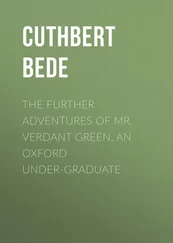A week later I was back with José and Maria. I told them everything. Gently, kindly, Maria found the right words to restore my spirits. Her father urged me to stay with them. "We'll raid the Caratal mine, if you like." I smiled, and patted him on the shoulder.
No, really that did not appeal to me; I mustn't stay there. It was only my love for Maria and hers for me that could keep me in El Callao. I was more hooked than I had believed and more than I wanted. It was a strong, genuine love; but still it wasn't powerful enough to overcome my desire for revenge.
Everything was settled: I had made arrangements with a truck driver and we were to leave at five the next morning.
While I was shaving, Maria slipped out and hid in her sisters' room. That mysterious sense women possess had told her that this was the real parting. Picolino was sitting at the table in the big room, washed and tidy, with Esmeralda standing next to him, her hand on his shoulder. I took a step toward the room where Maria was. Esmeralda stopped me. "No, Enrique." Then she too darted to the door and disappeared.
José went with us as far as the truck. We did not say a word.
It was a tough journey, particularly for Picolino. Six hundred miles and more; twenty hours of driving, not counting the stops. We spent a few hours in Ciudad Boll var, and then having crossed the splendid Orinoco on a ferry, we tore along, the truck racing like crazy, driven by a man with nerves of steel; which was just as well.
The next afternoon at four o'clock we reached Caracas. And there I was in the big city. The movement, the crowds, the coming and going of thousands and thousands of people, sucked me right in.
1931, Paris. 1946, Caracas. Fifteen years had passed since I had seen a genuine big city. A lovely city, Caracas, beautiful with its one-story colonial houses; and it stretched right down the valley with the Avila mountains rising all round it. A city three thousand feet up, with an everlasting spring, neither too hot nor too cold.
"I trust you, Papillon," said Dr. Bougrat's voice in my ear, just as if he were there, watching us drive into this huge, swarming city.
Crowds of people everywhere, of all colors from the darkest to the lightest, without any complexes about race. All these people, black, brick-red or purest white, were alive with a happiness that went to my head in the first moments.
With Picolino leaning on my arm, I walked toward the middle of the city. Big Chariot had given me the address of an ex-con who kept a boardinghouse, the Pension Maracaibo.
Yes, fifteen years had gone by and a war had shattered the lives of hundreds of thousands of men of my age in a great many lands, including my own country, France. Between 1939 and 1945 they, too, had been prisoners, or had been killed or maimed. But I was thirty-nine. I was young and strong.
How beautiful it is, a great city! And it was only four o'clock now. What must it be like at night, with its millions of electric stars? Yet we were still only in a working-class district, and a pretty tough one, at that. I'd spend a little money for once. "Hey there, taxi!"
Sitting beside me, Picolino laughed and dribbled like a kid. I wiped his poor mouth; he thanked me with shining eyes, trembling, he was so moved. For him, being in a town, a great capital like Caracas, meant above all the hope of finding hospitals and doctors who could turn the wreck he had become into a normal man once more. The miracle of hope. He held my hand, while outside the streets went by and then still more streets with people and still more people, so many of them they entirely hid the pavement. And the cars, and the horns, and the siren of an ambulance, the clang of a fire engine, the bawling of the hawkers and the newsboys selling the evening papers, the shriek of a truck's brakes, the ting-a-ling of the trolleys, the bicycle bells- all these shouts and the deafening noise around made us feel almost drunk. The din destroys some people's nerves, but it had the opposite effect on us; it woke us up and made us thoroughly understand that we were right back in the crazy rhythm of modern mechanical life-and instead of being tensed up we felt wonderfully happy.
It wasn't surprising that the noise struck us most. For I'd known silence for fifteen years, the silence of the prisons, the silence of the penal settlement, the more than silence of solitary confinement, the silence of the bush and of the sea, the silence of the little remote villages where happy people live.
I said to Picolino, "We are coming into a foretaste of Paris- Caracas, a real city. Here they'll make you well, and as for me, I'll find my right path and work out my fate; you can be sure of that."
His hand squeezed mine; a tear ran from his eye. His hand was so brotherly and affectionate that I held on to it so as not to lose that marvelous contact; and since his other arm was dead, it was I that wiped away my friend's tear.
At last we reached the place run by Emile S., the ex-con, and settled in. He wasn't there, but as soon as his wife, a Venezuelan, heard we were from El Callao, she grasped what we were and gave us a room with two beds right away, and some coffee.
Having helped Picolino take a shower, I put him to bed. He was tired and overexcited. When I left he made violent signs; and I knew he meant to say, "You'll come back, won't you? You won't leave me in the lurch, all by myself?"
"No, Pico! I'll just spend a few hours in the town: I'll be back soon."
And here I was in Caracas. It was seven o'clock when I walked down the street toward the Plaza Simon Bolivar, the biggest in the city. An explosion of light everywhere, a magnificent pouring out of electricity, neon signs of every color. What enchanted me most were the advertisements in colored lights, flaming dragons that came and went like will-o'-the-wisps, flashing on and off like a ballet run by a magician.
It was a splendid square, with a huge bronze statue of Simon Bolivar on an enormous horse in the middle of it. He looked terrific, and the statue showed how noble he must have been. I walked right around him, the man who set Latin America free, and I could not help greeting him in my bad Spanish, speaking low so no one would hear, "_Hombre!_ What a miracle it is for me to be here at your feet-at the feet of the Man of Freedom. A poor bastard like me, who has been fighting all the time for that freedom you personify."
The _pension_ was a quarter of a mile from the square, and I went back twice before I found Emile S. He said Chariot had written to tell him we were coming; we went out to have a drink so we could talk quietly.
"It's ten years now I've been here," Emile said. "I'm married, with a daughter, and my wife owns the pension. That's why I can't put you up for nothing; but you'll only pay half price." The wonderful solidarity of ex-cons when one of them is in a jam! He went on, "Is he an old friend, that poor guy with you?"
"You've seen him?"
"No, but my wife's been telling me about him. She says he's an absolute wreck. Is he senile?"
"Far from it, and that's what's so terrible. His mind is as clear as a bell, but his tongue and his mouth and his right side down to the waist are paralyzed. That's the way he was when I first knew him in El Dorado. Nobody knows who he is or whether he's a con or a detainee."
"I can't see why you want to drag this stranger around with you. You don't even know if he's a regular fellow or not. And then on top of that, he's a burden to you."
"I've realized that, these eight months I've been looking after him. In El Callao I found some women who took charge. Even so, it's not easy."
"What are you going to do with him?"
"Get him into a hospital if I can. Or find a room-rough, if need be, but with a shower and a toilet-to look after him until I can find a place for him somewhere."
Читать дальше
Конец ознакомительного отрывка
Купить книгу











